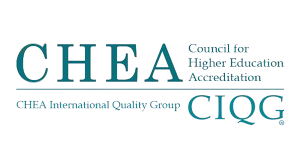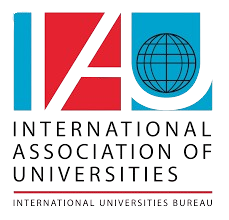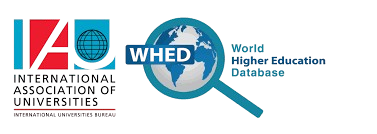MBBS in Georgia
Embark on Your Medical Journey: Study MBBS in Georgia 2024 -2025
The students aspiring to pursue MBBS in Europe have a secure and top-quality option in Georgia’s medical universities.
With a focus on student welfare, Georgia’s institutions provide quality education and a vibrant cross-cultural environment.
Unlike other destinations, studying MBBS in Georgia combines affordability with advanced facilities, making it a solid value for money.
Medical colleges in Georgia offer cutting-edge research infrastructure and are accredited by global organizations like the Medical Council of India (MCI) and the World Health Organization (WHO),
ensuring educational standards meet top international benchmarks. This commitment to quality has attracted a growing number of Indian students eager to study medicine in Georgia.
Georgia’s MBBS programs accommodate students without IELTS or TOEFL scores, providing greater accessibility for all.
Students with at least 50% in their grades can even apply for scholarships, while CBSE and ICSE students in India are also eligible.
The MBBS course takes five years, with an optional one-year internship for hands-on experience.
Nestled between Europe and Asia, Georgia offers some of the finest MBBS universities, allowing students to study medicine abroad affordably.
Here's everything you need to guide you through selecting an MBBS course in Georgia that suits your career goals.

Programs Available at Georgian Medical Universities
The Courses Offered by Georgian Medical Universities
• MBBS / MD - 6 YEARS DURATION
• DENTISTRY - 5 YEARS DURATION
• PHARMACY - 4 YEARS DURATION
• NURSING - 4 YEARS DURATION
Admission Cycles for MBBS in Georgia
• MBBS programs in Georgia typically commence their sessions by the end of September.
• The medical education journey in Georgia usually begins in September.
• Seats for MBBS admission in Georgia are allocated on a first-come, first-served basis. To ensure a smooth admission process, it is advisable to apply in July or August.
Brief Insights - MBBS in Georgia
Below are the key essentials for the students to consider when taking steps to pursue an MBBS in Georgia.
| Aspect | Details |
|---|---|
| Intake | October |
| Basic Eligibility | 50% in PCB for General at 10+2 Science 40% for SC/ST/OBC or reserve categories |
| NEET Exam Test | Required with qualifying marks for students who want to practice profession in India. |
| IELTS and TOEFL | Not, required |
| Last Date to Apply for 2024 | Oct, 2024 March 2024 |
| Medium of Education | English Language |
| Universities Recognition | NMC, WHO, WFME, ECFMG, FAIMER |
| Minimum Course Fee | USD 4200/Year |
| Maximum Course Fee | USD 6000/Year |
| Cost of Living in Georgia | USD 150-180/Month |
| Course Duration (In Years) | 4.8 + 1 year clinicals (internship) |
| Top Medical Universities | Georgia National University (SEU) David Tvildiani Medical University |
Benefits of Pursuing MBBS in Georgia
As a student narrows down options to study MBBS abroad, it is important to consider the following factors when evaluating MBBS colleges in Georgia.
• Studying MBBS in Georgia goes beyond traditional classroom learning. From the very first semester, students engage in hands-on experiments and clinical clerkships that help build both skill and confidence.
• The quality of education in Georgia is unmatched, supported by state-of-the-art technology and infrastructure, making it an ideal destination for medical studies.
• Accommodation and food options, including Indian cuisine, are readily available and match the high standards of MBBS education in Georgia, especially for Indian students.
• Pursuing MBBS in Georgia is an affordable option compared to other countries, even in private medical colleges.
• Safety is a top priority in Georgia, and Indian students can travel and explore the country with ease, using public transportation without any concerns.
• The straightforward admission process is another major draw. To gain admission to top medical colleges in Georgia, students need to have a solid academic record in Physics, Chemistry, and Biology from their 12th grade.
• International faculty members bring global expertise, making the learning experience in Georgia even more enriching.
• International students studying MBBS in Georgia enjoy approximately 50% off on transportation, further adding to the cost-effectiveness of living and studying there.
• Opportunities for excellent internships and further studies, such as pursuing an MD in Georgia, are available after completing the MBBS program.
• Georgian medical universities are accredited by organizations like WHO, NMC, and ECFMG, ensuring international recognition of degrees.
• Medical education in Georgia is cost-effective compared to other countries, with no compromise on quality.
• Programs are taught in English, eliminating language barriers for international students.
• Admission is based on academic performance, with no need for competitive entrance exams.
• State-of-the-art facilities and experienced faculty provide excellent theoretical and practical knowledge.
• Georgia offers a welcoming, multicultural environment with a high level of safety for international students.
• The admission process is straightforward, with minimal documentation requirements.
• Georgia provides a high standard of living at affordable costs, making it an attractive destination for students.
• Students get hands-on experience in leading hospitals, preparing them for global medical practices.
• Graduates are eligible to take international licensing exams like USMLE, PLAB, and FMGE.
• Georgia’s moderate climate enhances the overall study experience, promoting comfort and well-being.
Eligibility Requirements for Students to Study MBBS in Georgia
To be eligible for MBBS in Georgia in 2024, students must be at least 17 years old by 31st December 2024.
A higher secondary or equivalent degree from a recognized board or university is required for admission. It is also essential for Indian students to have cleared the NEET exam, as MBBS in Georgia cannot be pursued without it.
While some universities in Georgia may require students to clear English proficiency tests like IELTS or TOEFL with a good score, others may opt for personal interviews in place of this requirement.
For students in the general category, a minimum of 50% aggregate in Physics, Chemistry, and Biology combined in their higher secondary education is necessary, with English being a compulsory subject. Students in the SC/ST/OBC categories must have a minimum of 40% aggregate in these subjects.
Admission Procedure for Students to Study MBBS in Georgia
The plan of action that an aspiring student needs to follow for a smooth and successful admission process to pursue MBBS in Georgia is straightforward and hassle-free.
1. Eligibility Check
Ensure that you meet the basic eligibility criteria, including the required educational qualifications, age, and NEET qualification.
2. Research Universities
Research and select the medical universities in Georgia that offer MBBS programs. Review their accreditation, curriculum, faculty, and fee structure to make an informed decision.
3. Application Submission
Submit the application form to your chosen university. This can typically be done online. Include necessary documents such as your 12th-grade mark sheet, NEET scorecard, passport, medical certificate, and proof of English proficiency (if required).
4. University Selection
Once the university accepts your application, you may be required to attend a personal interview or provide additional documents based on the university’s admission process.
5. Acceptance Letter
After successful selection, you will receive an admission offer or acceptance letter from the university.
6. Visa Application
Apply for a student visa with the required documents, including the admission letter, passport, and proof of financial stability.
7. Fee Payment
Pay the tuition fees and other required charges as per the university's guidelines.
8. Travel and Arrival
Once the visa is approved, you can make travel arrangements and prepare for your stay in Georgia.
The admission process is relatively straightforward, but it's important to stay organized and follow the steps carefully.
Required Documents for a Student Visa to Study MBBS in Georgia
Essential and mandatory for gaining entry into the medical field in Georgia are the following requirements. Aspirants traveling to Georgia solely for their studies will be granted a study visa.
To obtain a study visa, the following documents must be in order:
• Original passport valid for one year
• Six passport size photos
• Birth Certificate in English
• Migration Certificate
• Medical certificate that has complete reports on HIV and vaccination
• Filled application form
• Admission/offer letter after processing fee
• Bank statement of the last six months with a copy of income tax return
• Admission or invitation letter from the university or the institution
• Photocopies of IELTS or academic scorecard
• Bank certificate of Rs.3-4 Lakhs
• Photocopies of academic and IELTS scorecards
• Two-way tickets of the student
Top Reasons to Pursue MBBS in Georgia
Currently, over 5,000 students are pursuing MBBS/MD degrees in Georgia. Here are some key reasons to choose Georgia for your medical studies:
1. Safe and Secure Environment
As a democratic republic, Georgia has significantly lower crime rates compared to many other countries, ensuring a safe and secure atmosphere for all students.
2. Affordable Education
The cost of studying in Georgia is highly affordable, approximately 2.5 times less expensive than in many other countries, making it a cost-effective option for medical education.
Premier Medical Universities in Georgia (MCI Recognized)
Premier Medical Universities in Georgia (MCI Recognized)
Top-ranked, MCI-approved medical colleges in Georgia are home to over 5,000 Indian students, with the numbers steadily increasing as more enroll to study MBBS in Georgia for 2021-22. If you're considering pursuing MBBS in Europe, you could be the next to join this growing community!

The University of Georgia stands out for its exceptional academic programs, dynamic social environment, and remarkable athletic accomplishments. With an international ranking of 180 and a national ranking of 70, it has become a top choice for medical aspirants looking to pursue MBBS abroad. Additionally, it holds a commendable 204th position globally for educational quality.
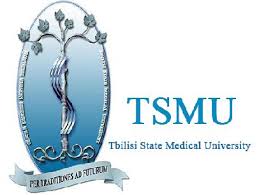
Tbilisi State Medical University (TSMU) is one of Georgia's premier medical institutions, recognized by the National Medical Commission (NMC). Renowned for its commitment to high-quality education and experienced faculty, TSMU stands out for its reputation, leadership, academic excellence, and strong references, making it a top choice for medical education in Georgia.
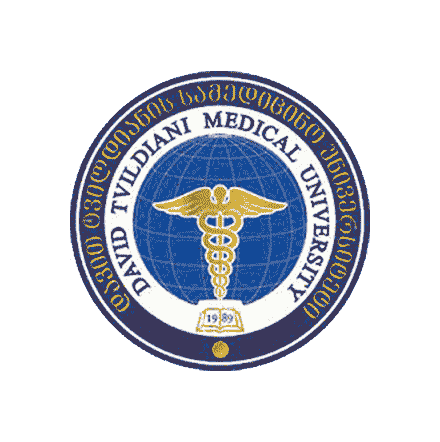
Founded in 1990 and located in Tbilisi, Georgia, DTMU provides students with a rich educational environment. The university's dedicated medical department, AIETI Medical School, consists of a single faculty, empowering students to enhance their reputation within the medical field through the general medicine faculty. In addition, DTMU offers postgraduate programs, clinical training, and preparation for the primary admission examination.
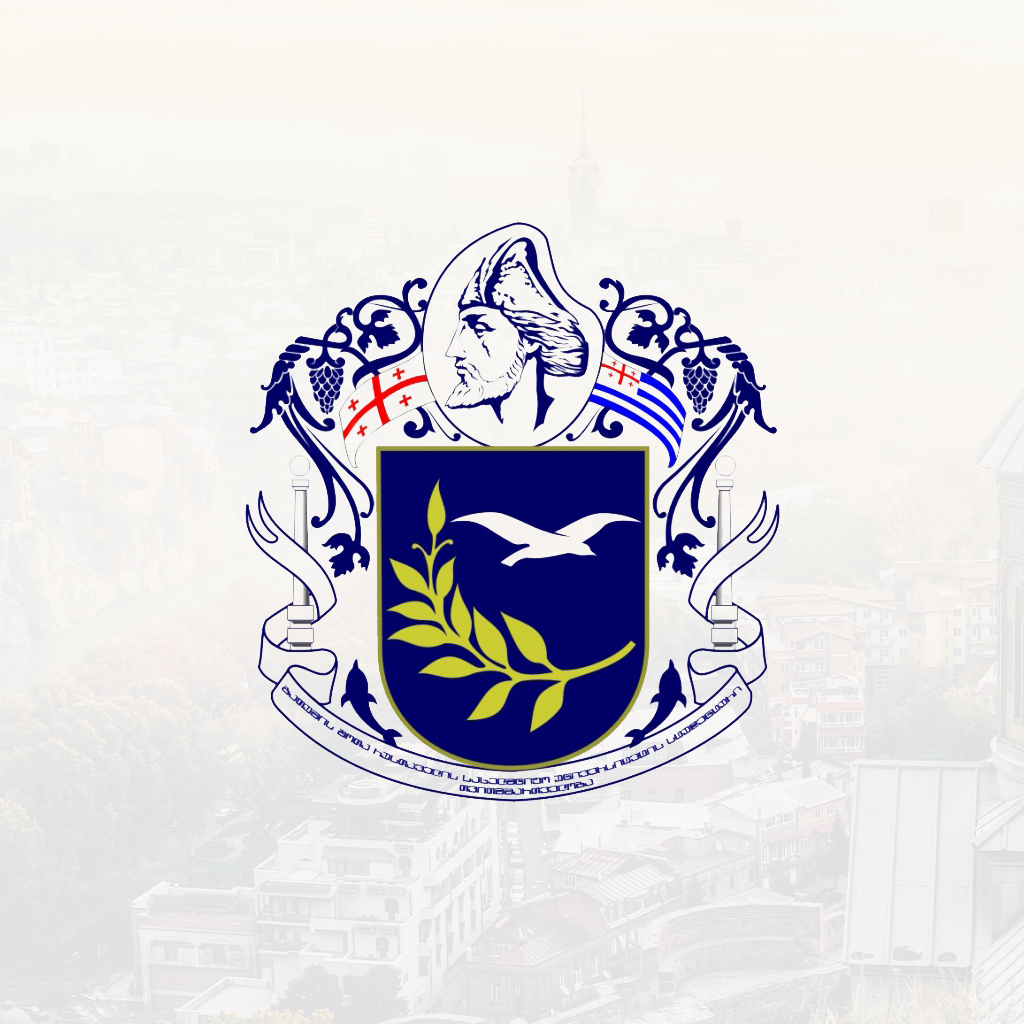
The university, located in the capital of the Republic of Adjara, Batumi, Georgia, is named after the renowned Georgian poet Shota Rustaveli. Established in 1923, the University of Batumi Shota Rustaveli strives to provide an exceptional education to its students. To ensure high-quality learning, the university employs a dedicated team of 387 visiting academics, 71 researchers, and 273 full-time instructors. Additionally, over 1,000 students from more than 50 countries are currently studying medicine in India.
Fee structure MBBS Program in Georgia 2024 - 2025
The following provides insights into the affordable fee structure for aspirants pursuing an MBBS in Georgia.
| Name of the Universities | Tuition Fees/Year | Hostel Approx Cost of living | Annual Fees per Year (Food + Education) |
|---|---|---|---|
| Georgian National University (SEU) | USD 4600 | USD 2000 | USD 6550 |
| Tbilisi State Medical University | USD 7050 | USD 2000 | USD 7500 |
| David Tvildiani Medical University | USD 8700 | USD 2000 | USD 9200 |
| Ivane Javakhishvili Tbilisi State University | USD 3350 | USD 2000 | USD 3800 |
| New Vision University | USD 5800 | USD 2000 | USD 8200 |
| Batumi Shota Rustaveli State University | USD 3350 | USD 2500 | USD 7500 |
| Akaki Tsereteli State University | USD 5100 | USD 2000 | USD 5600 |
| Name of the Universities | Tuition Fees/Year | Hostel Fees/Year | Annual Fees/Year |
|---|---|---|---|
| Tbilisi State Medical University | USD 7100 | USD 500 | USD 7500 |
| Geomedi Medical University | USD 2900 | USD 500 | USD 3350 |
| East European University | USD 4200 | USD 2100 | USD 6250 |
Program Overview and Details - MBBS in Georgia
MBBS in Georgia for the students offers a comprehensive syllabus designed to prepare you for the future, whether pursuing an MD in Georgia or exploring broader opportunities worldwide
| 1st Year | 2nd Year |
|---|---|
| Anatomy | Hematology |
| Medical Genetics | Immunology |
| Medical Genetics | Biophysics |
| Biochemistry | Introduction to Public Health |
| Molecular Biology | Clinical & Professional Skills III |
| Cardiovascular & Respiratory Systems | Endocrine |
| History of Medicine | Renal & Reproductive Systems |
| Clinical & Professional Skills I | Nanomedicine |
| Clinical & Professional Skills II | Philosophy |
| 3rd Year | Clinical Rotations |
|---|---|
| Neuroanatomy | Internal Medicine clerkship |
| Neurophysiology | Pulmonology |
| Behavioral Medicine | Nephrology |
| Pharmacology | Urology |
| Pathology | General Surgery |
| Introduction to clinical diagnostics II | System Biology |
| Physical Diagnosis | Hepatology |
| Clinical Skills | Family Medicine |
| Medical Management | Clinical radiology |
| - | Laboratory Medicine |
| 5th Year | 6th Year |
|---|---|
| Internal Medicine | Obstetrics/Gynecology |
| Clinical Immunology | Family Medicine III |
| Dermatology | Paediatrics |
| Stomatology | Narcology |
| Ophthalmology | Clinical Practice |
| Emergency Medicine | Palliative care clerkship |
| Infectious Diseases | - |
| Rehabilitation Medicine | - |
| Forensic Medicine | - |
| Medical Toxicology | - |
Duration of the MBBS Program in Georgia
The duration of an MBBS program in Georgia typically spans 6 years.
This includes 5 years of academic studies focused on medical theory and practical training, followed by a 1-year internship that provides hands-on experience in clinical settings.
Academic Calendar: 2024 Intake
Here’s a snapshot of the key dates aspiring students should note to secure admission to top medical colleges in Georgia. Please note that the details provided may vary across universities.
| Events | Dates |
|---|---|
| Application Start Date | August 2024 |
| Last Date of Application | Oct 2024 - March 2024 |
| Course Commences From | October 2024 |
Mode of Instruction in Georgia
Georgia continues to be an ideal destination for Indian students wishing to pursue MBBS in Europe, thanks to its universally accepted medium of instruction. The MBBS program in Georgia is delivered by esteemed faculty members over a period of 6 years.
The medium of instruction for MBBS programs in Georgia is primarily English, ensuring that international students, including those from India and other non-native English-speaking countries, can easily follow the courses and lectures.
Some universities may also offer medical programs in Georgian, but English is widely used for the benefit of foreign students.
Accommodation and Hostel Facilities for MBBS Students in Georgian Universities
On-campus hostels: Most universities offer well-equipped hostels with essential amenities.
Basic facilities: Hostels typically provide Wi-Fi, meals, and 24/7 security.
Affordable options: Accommodation in Georgia is generally affordable, both on-campus and off-campus.
Off-campus apartments: Students who prefer more privacy can opt for nearby apartments.
Proximity to university: Many hostels and apartments are located close to the university for convenience.
Comfortable environment: The living facilities are designed to ensure a comfortable experience for students.
Note: Students also have the option to choose off-campus accommodation, including rented flats, apartments, hotels, lodges, or homestays with host families.
Students are free to select their preferred living arrangements, but it is important to prioritize the choice of accommodation just as carefully as the selection of the university.
Checklist for Effectively Choosing Accommodation
• Understand the expenses: Consider utilities like electricity, water, and food costs.
• Read the contract first: Always review the terms of the lease or rental agreement before confirming occupancy.
• University support: Remember that the university is available to assist with any housing-related queries.
Safety of Students in Georgia
For students considering studying MBBS in Europe, Georgia stands out as one of the safest options.
• Global Peace Index: Georgia ranks 85th globally, whereas India is at 141st and the USA at 103rd, highlighting its relatively peaceful environment.
• Police Presence: There is a strong police presence on the streets, especially at night, ensuring safety and security for all residents.
• Friendly Locals: Most locals are welcoming, polite, and friendly towards visitors, contributing to a comfortable living experience.
However, it is important to exercise caution in the following areas
• Traffic Safety: Driving in Tbilisi can be aggressive and chaotic, which might be unsettling for newcomers. Always stay cautious while on the roads.
• Avoid Conflict Zones: Stay clear of regions like South Ossetia and Abkhazia in the north, as they are affected by regional conflicts, even though the areas may seem calm.
• Mountain Safety: Avoid trekking in the mountains alone without proper equipment, as the area is home to stray dogs and potentially dangerous wildlife. Also, be cautious of cliffs and rugged terrain.
NEET Eligibility for Studying MBBS in Georgia
To study MBBS in Georgia, Indian students must meet the NEET (National Eligibility cum Entrance Test) requirement set by the Ministry of Health and Family Welfare and the National Medical Commission (NMC). Here are the key points regarding NEET eligibility:
1. NEET Requirement: Indian students must qualify for the NEET exam to pursue MBBS in Georgia. This is mandatory for students wishing to practice medicine in India after completing their MBBS abroad.
2. Non-NEET Pass: Even if students do not pass the NEET exam, they are still eligible to study MBBS in Georgia. However, they will not be able to practice medicine in India unless they meet the necessary qualifications.
3. Post-Graduation Option: After completing their MBBS in Georgia, students may be required to pass exams like the FMGE (Foreign Medical Graduate Examination) to practice medicine in India.
Postgraduate Options After MBBS in Georgia
After completing an MBBS degree in Georgia, students have several options to further their medical education and career. Here are some of the common postgraduate pathways:
1. MD/MS Programs: Students can pursue a Master's degree (MD/MS) in various specializations such as General Medicine, Surgery, Pediatrics, Orthopedics, and more. These programs are available at several universities in Georgia and provide advanced training in medical fields.
2. Clinical Internships: Many universities offer clinical internships where students gain hands-on experience in hospitals and healthcare settings. This is an important step before pursuing further specialization.
3. FMGE (Foreign Medical Graduate Examination): Indian students who wish to practice medicine in India after completing their MBBS in Georgia must clear the FMGE exam. This allows them to obtain a medical license in India.
4. Specialization in Georgia or Abroad: After completing the MBBS, students can opt for specialization programs either in Georgia or abroad. Some students choose to pursue further studies in countries like the US, UK, or other European nations.
5. Research Opportunities: For those interested in academic medicine, there are opportunities for research programs and fellowships in various medical fields.
6. Residency Programs: Students can also apply for residency programs in hospitals, which allow them to specialize in specific medical disciplines. These programs are available in Georgia and internationally.
These options offer diverse pathways for further growth and specialization in the medical field after completing an MBBS in Georgia.
The Recognition of Medical Universities in Georgia
Some of the most prestigious organisations in the world have recognised Georgia's medical universities.
• NMC (National Medical Commission)
• WHO (World Health Organization)
• Ministry of Education, Georgia
• WFME (World Federation for Medical Education)
• ECFMG (Educational Commission for Foreign Medical Graduates)
• FAIMER (The Foundation for Advancement of International Medical Education and Research)
Holiday Breaks During MBBS in Georgia
Students pursuing MBBS in Georgia can enjoy several breaks throughout their academic journey. These breaks provide students with opportunities to relax and recharge while also experiencing the culture and lifestyle of Georgia. Here's a look at the holiday breaks:
1. Winter Break: Typically occurring between December and January, this break allows students to enjoy the winter season in Georgia. It coincides with the New Year holidays, making it a great time for students to explore the country and take part in festive activities.
2. Summer Break: A longer break, usually spanning 2-3 months (from June to August), gives students ample time to rest after completing exams. Many students use this time to travel, gain work experience, or prepare for the upcoming academic year.
3. National Holidays: Georgia celebrates several national holidays, such as Independence Day (May 26) and Giorgoba (St. George's Day, November 23). On these occasions, universities may close, and students can take part in local celebrations and cultural events.
4. Public Holidays: In addition to national holidays, there may be university-specific breaks around other public holidays, giving students time off from classes.
5. Semester Breaks: Between academic semesters, students usually have a brief holiday break to relax or revise for exams.
These breaks provide essential downtime, and many students also use this time to travel, explore the city, or participate in cultural activities, enhancing their overall experience of studying MBBS in Georgia.
FMGE Pass Percentage After Completing MBBS in Georgia
The Foreign Medical Graduate Examination (FMGE) is a mandatory exam for all Indian students who have completed their MBBS abroad. This exam evaluates the qualifications of foreign medical graduates and ensures their eligibility to practice medicine in India.
For graduates of MBBS programs in Georgia, the FMGE passing rate is an important factor to consider. According to recent data, out of 13,364 test-takers, only 2,767 were able to pass the exam. This indicates a competitive passing rate, with students needing to prepare thoroughly to clear the FMGE and pursue their medical careers in India.
Career options: After MBBS in Georgia
After completing an MBBS degree in Georgia, graduates have a wide range of career options, both internationally and in India. Here are some of the potential career paths:
1. Medical Practice in India
Upon clearing the FMGE (Foreign Medical Graduate Examination), students can practice medicine in India and apply for various government and private sector jobs.
2. Postgraduate Studies (MD/MS)
Graduates can opt for postgraduate education in specialized fields such as Surgery, Paediatrics, Internal Medicine, Orthopaedics, and more, either in Georgia or other countries.
3. Clinical Research
Graduates can enter the field of clinical research, contributing to medical advancements and working with pharmaceutical companies or research institutions.
4. Medical Officer or Resident Doctor
Many opt for jobs as medical officers or residents in hospitals and clinics, gaining hands-on experience while advancing their career.
5. Teaching and Academia
Some graduates pursue a career in medical education, becoming faculty members in medical colleges or universities.
6. Health Administration
For those interested in the administrative side of healthcare, career options in hospital management, health policy, and healthcare management are available.
7. Healthcare Industry
Graduates can work with pharmaceutical companies, medical device manufacturers, or healthcare technology firms in research, development, sales, or marketing roles.
8. Medical Entrepreneurship
Starting their own clinics, diagnostic centers, or health-related businesses is another promising career option for MBBS graduates.
About Georgia
Georgia, located at the crossroads of Europe and Asia, is a country known for its rich history, diverse culture, and stunning landscapes. It borders Russia, Turkey, Armenia, and Azerbaijan, with the Black Sea to the west.
• Capital: Tbilisi, a vibrant city with a mix of modern and historical architecture.
• Geography: Features diverse landscapes, from the Caucasus Mountains to subtropical coastlines.
• Climate: Varies from subtropical on the coast to continental in the mountains.
• Language: Georgian is the official language; Russian is also widely spoken.
• Culture: Known for its ancient wine-making tradition, unique music, and delicious cuisine like khachapuri and khinkali.
• Education: Offers high-quality education, particularly in medicine, with many universities teaching in English.
• Safety: Georgia is considered safe, with low crime rates and a friendly local population.
• Economy: Primarily based on agriculture, mining, and tourism, with growing foreign investment.
Georgia combines a rich cultural heritage with modern development, making it an attractive destination for both students and tourists.
Climate Variations in Georgia
Georgia experiences a diverse climate due to its varied topography, ranging from subtropical along the coast to continental in the mountains. Here’s a brief overview:
• Coastal Areas: Mild, humid subtropical climate with warm summers and mild winters.
• Mountain Regions: Continental climate with colder winters, including snow at higher elevations, and warmer summers.
• Tbilisi: The capital has a moderately continental climate, with hot summers and cold winters.
• Rainfall: Varies across the country, with the west receiving more rainfall due to its proximity to the Black Sea, while the east is drier.
These climate variations create a blend of environments, allowing for diverse agricultural production and outdoor activities throughout the year.
Request A Quote
Need A Free Quote? Please Feel Free to Contact Us
Reply within 24 hours
24 hrs telephone support
We're here to help! Reach out to us today, and our team will provide you with a quick and accurate estimate tailored to your needs. Feel free to contact us anytime—we're just a call or message away! Let us assist you in making the best choice for your requirements...

